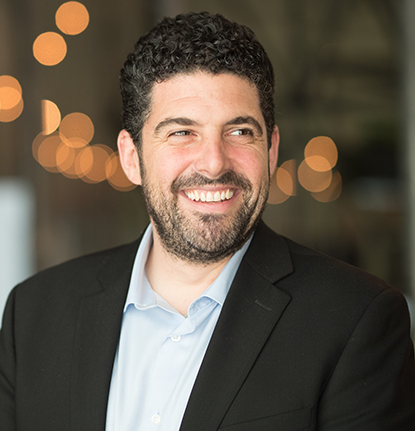Generation Alpha, or the cohort of kids born after 2011, have already lived through many unique experiences. A new study from Paramount Advertising and Nickelodeon explores the factors impacting Gen Alpha’s identity, relationships, community, aspirations for the future and connection with media and brands.
You’re talking about a new generation—Generation Alpha. What makes this generation interesting and distinct from others?
Cammy says, “To start off, Generation Alpha, they’re here. They’re here and they need to be understood. They already have a large footprint, just in terms of size, and they’re projected to have an extremely economic footprint. Researchers, marketers, every brand, needs to start paying attention to them. Nickelodeon started paying attention to and have been paying attention to kids—that’s our biggest stakeholder, today’s kids. It’s been exciting to spend the last eight months understanding Gen Alpha and really looking at what makes them tick and what’s possibly a little bit different than previous generations.”
The study is an extensive exploration of Gen Alpha. Cammy notes, “We look at the relationships with their parents, how that’s grown. We look at their community around them, questioning the notion if the village still exists for Gen Alpha. We look at the media and how that ship has changed and grown, as well as taking a look at their outlook, how they are viewing the world, how they are viewing the future. And then their identity, which oftentimes is shaping this outlook for the future in the process of finding out who they are and understanding who they are.”
These are the children of mostly Millennials, which is a sizable generation. For the study, Nickelodeon looked at six- to eleven-year-olds, a cohort that gives a sense of some formation of identity and self-actualization. There’s that Millennial influence from their parents, and the therapy generation has a major impact on how Alphas are being raised and how they’re embracing the world. You mentioned that phrase, it takes a village. Does that still apply to this generation?
“This is an interesting insight. Does the village still exist for Alpha?” asks Cammy. “We still believe in the concept of the village, according to our research, yet it doesn’t necessarily exist for these Alpha children. Although parents would like that idea to exist, instead, we’re thinking of the village more like curated collectives for Alphas. Parents are very intentional about who their children are interacting with. A bit less of an emphasis in Alpha’s lives are those blood relatives. So even though grandparents, aunts and uncles, they still play a strong part, there’s a larger part being played now than previous generations by those neighbors, community figures, friends, parents, and similar circles. Ultimately, we found that the village is much less disciplinarian for Alpha and much more emotional. This new curated community collective that they have around them is really built to give this emotional space for them.”
Right now, most generations are experiencing the evolution of media. How does that fit for this generation who is seeing what for them, might seem normal?
“The media, in its vast ways, has a major impact on Gen Alpha’s lives,” he says “We’ve seen them adopt technology and especially streaming technology and watching and just kind of being exposed to content at an earlier age. A lot of this was accelerated by the pandemic. But now we’re seeing some leveling off in terms of consumption. But often they’re still on their screens, over five hours a day. They’re still highly involved in content, and it’s taking in media, and it’s taking a major part of their lives. It’s rewarding to know that when it comes to their favorite activities, video content rises to the top. It’s the number one favorite activity. And three of the top five involve different forms of media, gaming, and so forth. There’s still a major connection to media itself, and we’re seeing some interesting kind of trends there emerge when it comes to content specifically.”
What can you share in that regard—through the lens of content trends?
Cammy says, “There’s this notion of mood management already happening. We see this larger understanding of emotional well-being, and a kind of safeguarding of your emotions. This has really started to translate into Alphas today. We’ve seen this in previous generations, a kind of curated viewing, especially with the rise of streaming. I want to lean into these kinds of feelings. I’m going to watch this kind of show. I’m going to rewatch this moment. This is already starting to happen with Alpha. They’re rewatching content for comfort. They’re clinging into specific characters to reach certain emotions, especially funny characters and characters that do good in the world. And surprisingly enough, we’re already starting to see a trend of nostalgic viewing among Alphas.”
Watch the complete video from the Media Insights & Engagement Conference as Seth Adler and Alexander Cammy discuss Generation Alpha, such as the uniqueness of their identity, the conversation around diversity, and the emotional priorities of this young consumer group.
Contributors
-

Seth Adler heads up All Things Insights & All Things Innovation. He has spent his career bringing people together around content. He has a dynamic background producing events, podcasts, video, and the written word.
View all posts -

Matthew Kramer is the Digital Editor for All Things Insights & All Things Innovation. He has over 20 years of experience working in publishing and media companies, on a variety of business-to-business publications, websites and trade shows.
View all posts
































































































































